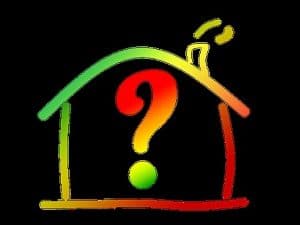Seniors may find their largest asset in retirement is their home, which may be able to unlock the financial stability they are looking for as they age. Home equity can be a large source of savings for most seniors in retirement and may provide much-needed funds for daily living, medical expenses, home improvements or to put aside for a rainy day.
What is a Reverse Mortgage?
A Home Equity Conversion Mortgage (HECM), also known as a reverse mortgage loan, is a Federal Housing Administration (FHA) insured loan1, which allows seniors access to a portion of their home’s equity without having to make monthly mortgage payments.2 Borrowers who are at least 62 years old and have sufficient equity in their home may be able to get the funds now or establish a line of credit to put aside when needed. If there’s still a mortgage on the home, it must be paid off from the reverse mortgage loan proceeds. If the borrower doesn’t have a current mortgage, it may increase the amount of money received. The loan typically becomes due when the last surviving borrower dies, sells the home, or permanently moves out.
How Much Can You Get?
The amount a borrower can receive from a reverse mortgage varies. With a reverse mortgage, borrowers cannot receive 100 percent of their home equity. Instead, the maximum funds available are calculated by using the following:
- Age of the youngest borrower on title or eligible non-borrowing spouse3
- The lesser of the appraised value of your home, sales price, or the FHA lending limit ($822,375 as of 1/1/2021)
- Current interest rates
- Balance of your existing mortgage, if applicable, and other financial obligations
What Type of Payment Options are Available?

Are you interested in learning if a reverse mortgage is right for you? Call 1-800-976-6211 and speak with a licensed loan advisor.
Important Disclosures:
1 As required by the Federal Housing Administration (FHA), you will be charged an up-front mortgage insurance premium (MIP) at closing and, over the life of the loan, you will be charged an annual MIP based on the loan balance.
2 Your current mortgage, if any, must be paid off using the proceeds from your HECM loan. You must still live in the home as your primary residence, continue to pay required property taxes, homeowners insurance, and maintain the home according to FHA requirements. Failure to meet these requirements can trigger a loan default that may result in foreclosure.
3 A spouse must meet the following requirements to be considered eligible: 1) be the spouse of the reverse mortgage borrower at the time of loan closing and remain the spouse of the borrower for the duration of the borrower’s lifetime. 2) Be properly disclosed to the lender at origination and specifically named as a Non-Borrowing Spouse in the loan documents. 3) Occupy, and continue to occupy, the property securing the reverse mortgage as the principal residence.
